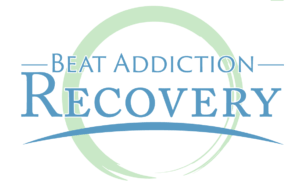Though it’s frightening to think that the people we trust with our wellness can be under the influence of substances, it happens more often than we think. According to the Drug Enforcement Administration’s post on drug addiction in healthcare, the abuse of prescription drugs is becoming an increasingly pressing issue in the country. More recent research even states that up to 69% of medical professionals have admitted to misusing substances throughout their careers.
What has sparked substance abuse in healthcare workers?
Substance abuse can be caused by a myriad of reasons, most of which are personal. However, among healthcare workers a prevalent cause of substance dependence is burnout. Since 2020, medical professionals have been in critical demand around the world. Consequently, medical professionals are experiencing record instances of mental health problems. This includes heightened instances of depression and anxiety. Chief among these conditions affecting healthcare workers, though, is burnout.
As a matter of fact, Forbes’ coverage of worker burnout reveals that this is the primary reason why almost 3% of the healthcare workforce has been resigning each month. This 2022 alone, nearly 1.7 million medical professionals have already left their jobs. On top of this, many more are switching to more flexible career opportunities. Telehealth provider Wheel’s list on how nurse practitioners can make extra money reveals that many are switching to alternative medical careers that offer a better work-life balance. These include working in telehealth, healthcare writing, immunization administration, and medical transcriptions to name a few. That said, not every burned-out healthcare worker is able to resign or find alternate work. As such, millions of medical professionals are left to deal with burnout in different ways. Unfortunately, reports show that a number of these medical professionals are turning to substances.
How substance abuse affects medical professionals
Substance abuse problems are harmful to any individual, but their dangers are dramatically multiplied when in relation to those whose profession deals with life and death. In studies published in the National Library of Medicine, it’s revealed that drug impairment in the healthcare workplace poses risks to both healthcare workers and patients alike. For the former, mind-altering substances have been found to result in the deterioration of mental and physical capabilities. For instance, stimulants may cause angina and myocardial infarction. Excessive use of certain drugs like downers can also cause falls or fractures. Aside from the obvious harm this causes a healthcare worker’s well-being, it also compromises the well-being of patients in their care. This can occur when medical professionals are unable to make sound calls, and also when patients with compromised immune systems are exposed to possible conditions that addicted healthcare workers carry.
What can be done to address this
The idea that medical professionals may be struggling with substance abuse is a frightening reality that needs to be addressed. While this is not easy to do given the secrecy and social stigma, there are ways that everyone can help. First, it’s important to understand the general symptoms of substance abuse. These include erratic energy levels, changes in attitude, weight fluctuations, and sudden secretiveness. Of course, this doesn’t mean that everyone who exhibits one or more of these has a substance abuse issue. But these are some of the most common indicators that are worth noting. In this way, it is easier to spot medical professionals who may need assistance.
Second, it’s essential to destigmatize substance abuse treatment. Most people who struggle with addiction already feel too ashamed to ask for help. So doubling down on this with judgment only makes it harder for them to get assistance. As we discussed previously in our article called “What is Medication-Assisted Treatment?”, having a support system makes the recovery journey a lot more positive. Having such support also makes it relatively easier to find the right recovery methods like medication-assisted treatment. This is considered one of the most effective treatments in battling opioid addiction. Since it also taps into cognitive behavioral therapy, this approach helps medical professionals learn coping techniques that will prevent relapses.
Substance abuse is a difficult and dangerous path for anyone. Among healthcare workers, having such an addiction can be life-changing for themselves and the countless people they’re sworn to serve. While the prevalence of substance abuse in the medical field is not an issue that can be solved overnight, it is a predicament that requires an entire community’s awareness, assistance, and compassion to overcome with time.
Article written by Roxanne James
Exclusively for

